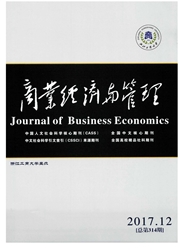

 中文摘要:
中文摘要:
日常管理实践可以注意到,顾客在消费过程中的情感状态会影响他们在服务完成后对服务的评价水平。但是这一管理事实在学术研究上长期未能引起足够的重视:以往关于服务质量和顾客满意度的研究本质上几乎都是基于认知的,情感的作用被忽视或低估。以商业银行服务为背景,本研究以问卷调查为实证工具,同时考察认知和情感因素在顾客服务后评价形成过程中的作用。研究结果显示,顾客消费情感与顾客认知显著相关,并且与顾客认知共同显著影响着整体服务质量评价和顾客满意。同时,顾客的情感状态可以划分为积极情感与消极情感,二者对顾客的服务经历评价也表现出了不同的影响作用。文章最后给出了该领域进一步研究的方向。
 英文摘要:
英文摘要:
We can often observe that customers' emotions in consumption process have an important effect on their service evaluation in common managerial practices, But the importance of emotions has not been recognized in academic field. Almost all the studies about service quality and customer satisfaction have been based on the cognition till now. This study suggests a model including emotion, cognition, service quality and customer satisfaction. Authors empirically test it by a questionnaire survey. The results show that consumption emotions and cognition together have significant influence on service quality and customer satisfaction. Positive affect has positive effect; whereas negative affect has negative effect. Future research directions are provided at the end of this paper.
 同期刊论文项目
同期刊论文项目
 同项目期刊论文
同项目期刊论文
 期刊信息
期刊信息
